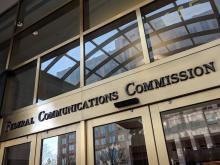The Hidden Cost: The Ripple Effects of Canceling the Digital Equity Act - Episode 647 of the Community Broadband Bits Podcast

In this episode of the podcast, Chris speaks with Jade Piros de Carvalho about the cascading impact of the federal government’s decision to cancel the Digital Equity Act.
They discuss how this sudden move threatens not just digital inclusion programs, but the very foundation of state broadband offices—and by extension, the success of the $42.5 billion BEAD infrastructure program.
With broadband office funding models built on a delicate web of interconnected federal grants, Jade explains why pulling one thread puts everything at risk.
This show is 24 minutes long and can be played on this page or via Apple Podcasts or the tool of your choice using this feed.
Transcript below.
We want your feedback and suggestions for the show-please e-mail us or leave a comment below.
Listen to other episodes or view all episodes in our index. See other podcasts from the Institute for Local Self-Reliance.
Thanks to Arne Huseby for the music. The song is Warm Duck Shuffle and is licensed under a Creative Commons Attribution (3.0) license










